ZHCSIH0C December 2017 – June 2021 LP87702-Q1
PRODUCTION DATA
- 1 特性
- 2 应用
- 3 说明
- 4 Revision History
- 5 说明(续)
- 6 Pin Configuration and Functions
- 7 Specifications
-
8 Detailed Description
- 8.1 Overview
- 8.2 Functional Block Diagram
- 8.3
Feature Descriptions
- 8.3.1 Step-Down DC/DC Converters
- 8.3.2 Boost Converter
- 8.3.3 Spread-Spectrum Mode
- 8.3.4 Sync Clock Functionality
- 8.3.5 Power-Up
- 8.3.6 Buck and Boost Control
- 8.3.7 Enable and Disable Sequences
- 8.3.8 Window Watchdog
- 8.3.9 Device Reset Scenarios
- 8.3.10 Diagnostics and Protection Features
- 8.3.11 OTP Error Correction
- 8.3.12 Operation of GPO Signals
- 8.3.13 Digital Signal Filtering
- 8.4 Device Functional Modes
- 8.5 Programming
- 8.6 Register Maps
- 9 Application and Implementation
- 10Power Supply Recommendations
- 11Layout
- 12Device and Documentation Support
- 13Mechanical, Packaging, and Orderable Information
9.2.4 Application Curves
Unless otherwise specified: VIN = 3.3 V, VOUT_BUCK =
1 V, VOUT_BOOST = 5 V, TA = 25°C,
ƒSW-setting 4 MHz, L0 = L1 = 0.47 µH (TOKO DFE252012PD-R47M), L2
= 1 µH (TFM252012ALMA1R0), COUT_BUCK, CPOL_BUCK, and
COUT_BOOST = 22 µF. Measurements are done using connections
in Figure 9-1.
Unless otherwise specified: VIN = 3.3 V, VOUT_BUCK =
1 V, VOUT_BOOST = 5 V, TA = 25°C,
ƒSW-setting 4 MHz, L0 = L1 = 0.47 µH (TOKO DFE252012PD-R47M), L2
= 1 µH (TFM252012ALMA1R0), COUT_BUCK, CPOL_BUCK, and
COUT_BOOST = 22 µF. Measurements are done using connections
in Figure 9-1.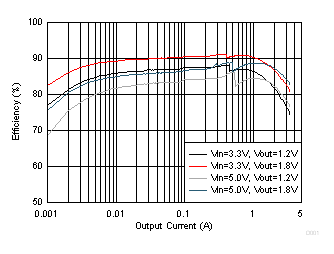
Figure 9-3 Buck
Efficiency in AUTO (PFM/PWM) Mode. Unless otherwise specified: VIN = 3.3 V, VOUT_BUCK =
1 V, VOUT_BOOST = 5 V, TA = 25°C,
ƒSW-setting 4 MHz, L0 = L1 = 0.47 µH (TOKO DFE252012PD-R47M), L2
= 1 µH (TFM252012ALMA1R0), COUT_BUCK, CPOL_BUCK, and
COUT_BOOST = 22 µF. Measurements are done using connections
in Figure 9-1.

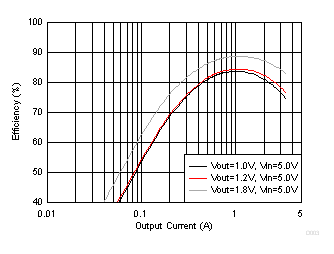
| VIN = 5 V |
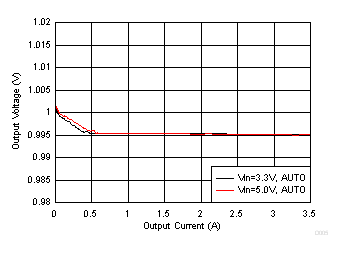
| VOUT = 1 V |
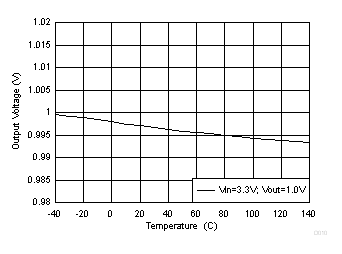
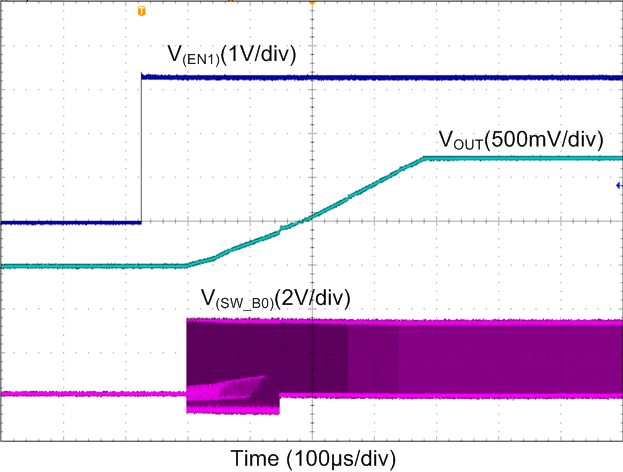
| RLOAD = 1 Ω |
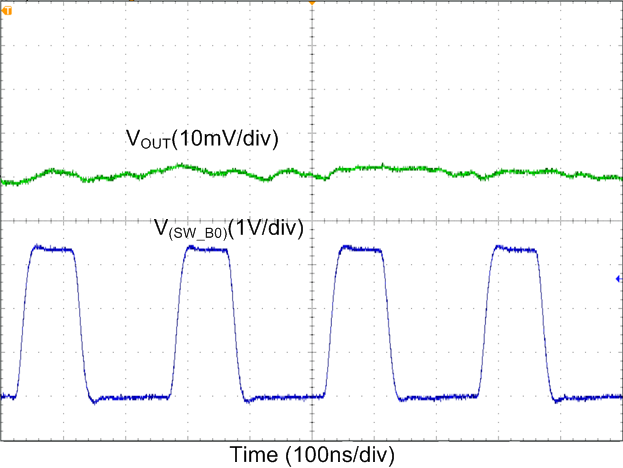
| VOUT = 1.2 V | IOUT = 500 mA |
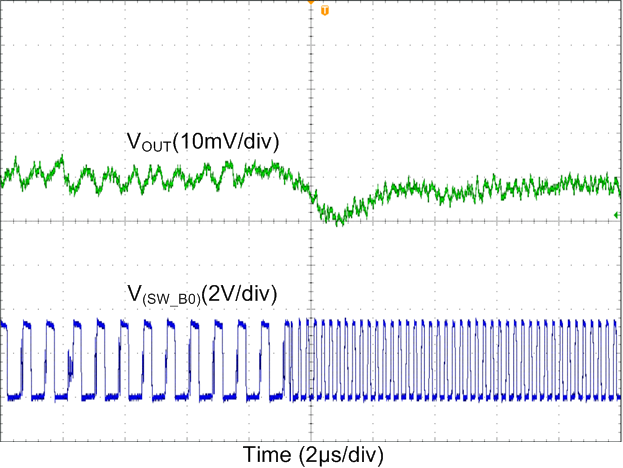
| VOUT = 1.2 V |
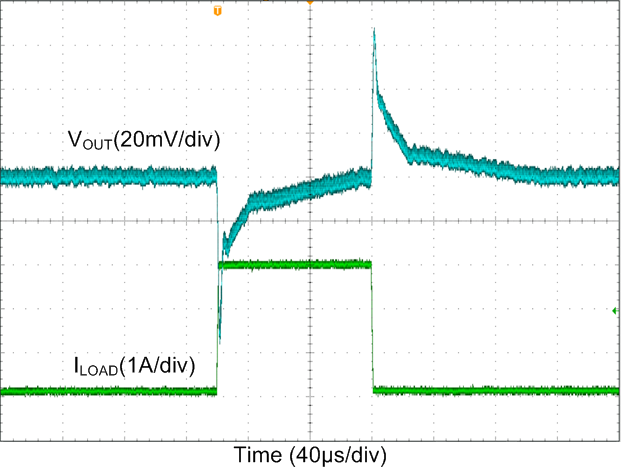
| IOUT = 0 A → 3 A → 0 A | TR = TF = 1 µs | VOUT = 1 V |
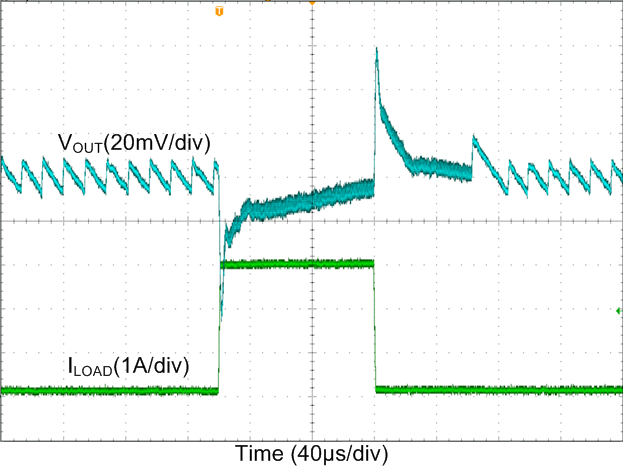
| IOUT = 0 A → 3 A → 0 A | TR = TF = 1 µs | VOUT = 1 V |
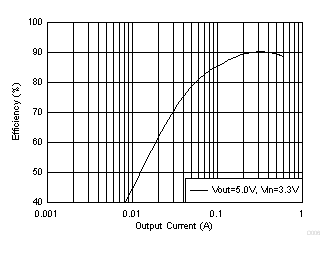
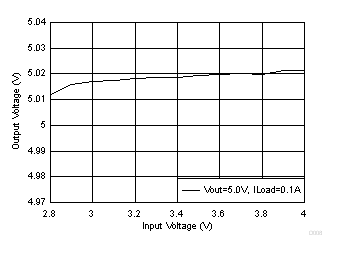
| IOUT = 0.1 A |
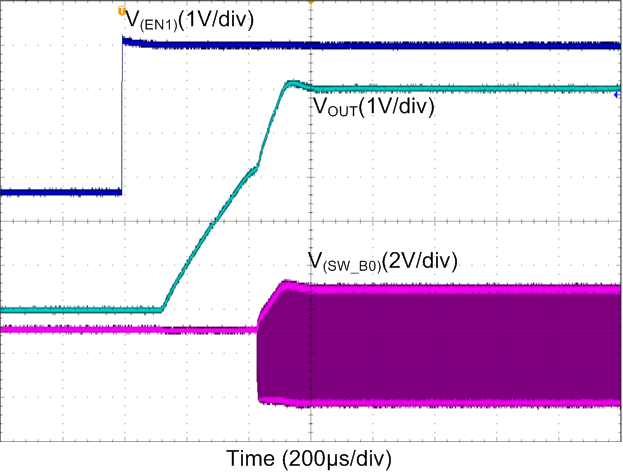
| RLOAD = 50 Ω |
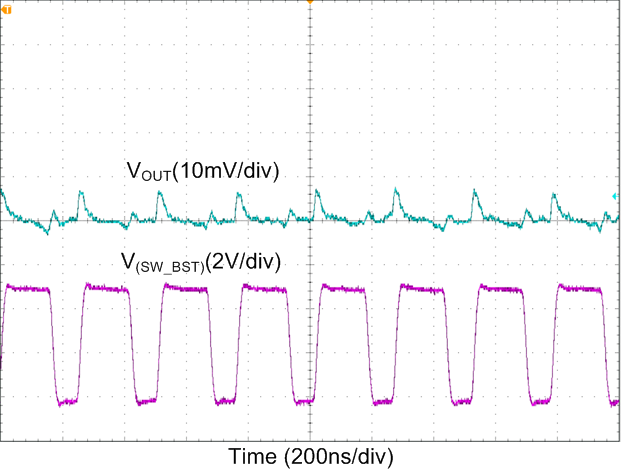
| IOUT = 0.1 A |
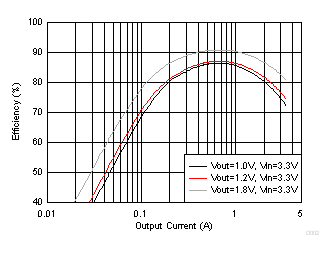
| VIN = 3.3 V |
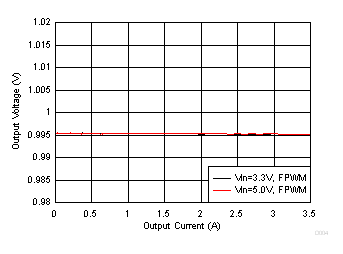
| VOUT = 1 V |
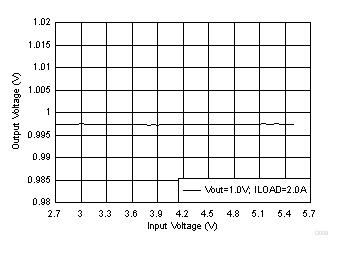
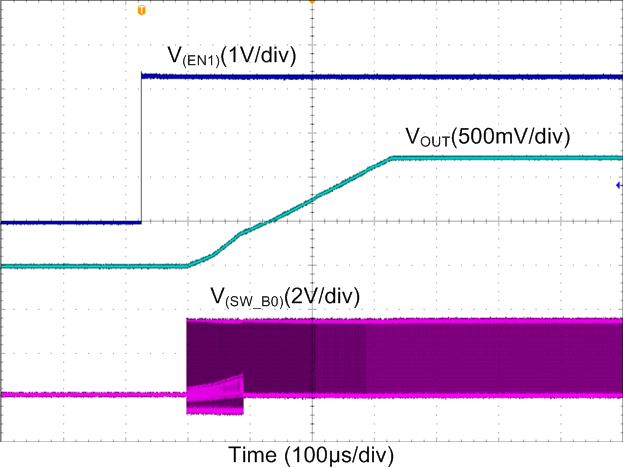
| IOUT = 0 A |

| RLOAD = 1 Ω |
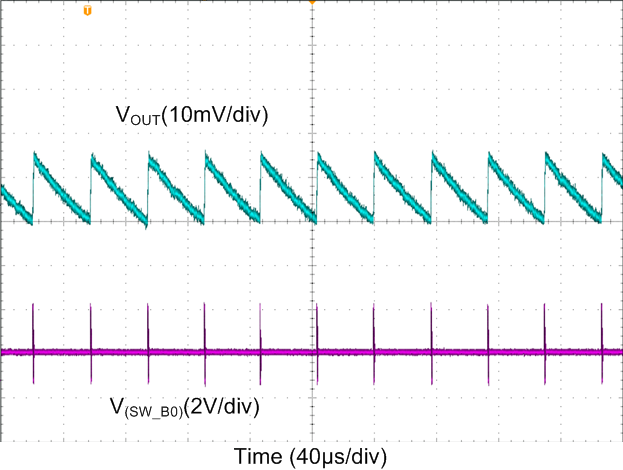
| VOUT = 1.2 V | IOUT = 10 mA |
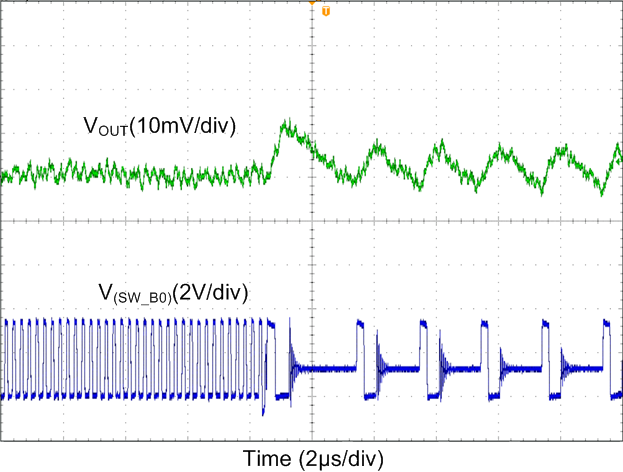
| VOUT = 1.2 V | |||
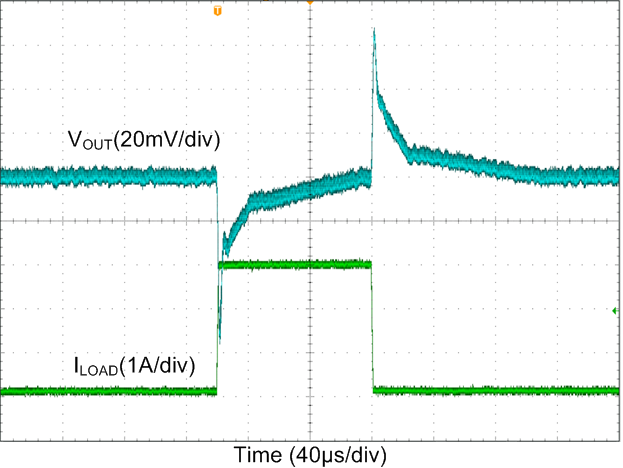
| IOUT = 0 A → 3 A → 0 A | TR = TF = 1 µs | VOUT = 1.2 V |
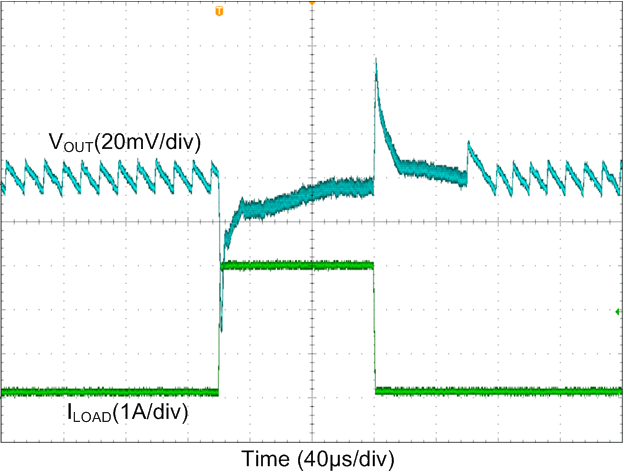
| VOUT = 1.2 V |
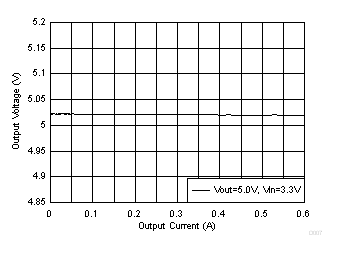
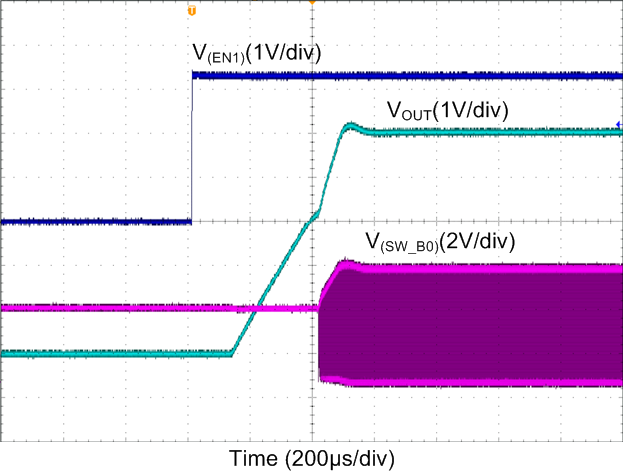
| IOUT = 0 A |
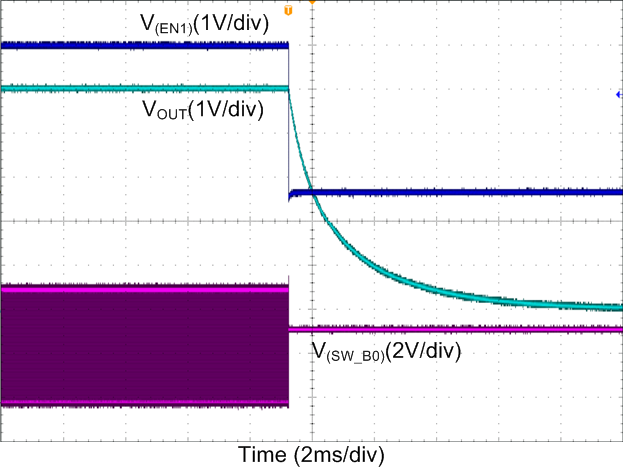
| RLOAD = 50 Ω |
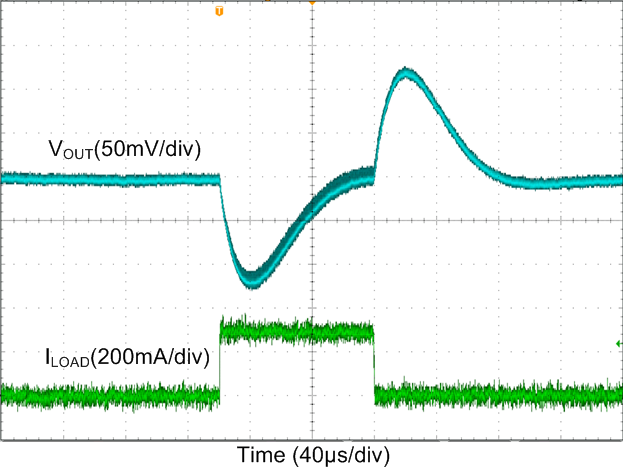
| IOUT = 0 A → 0.25 A → 0 A | TR = TF = 1 µs |